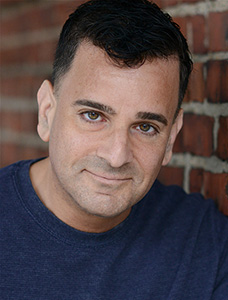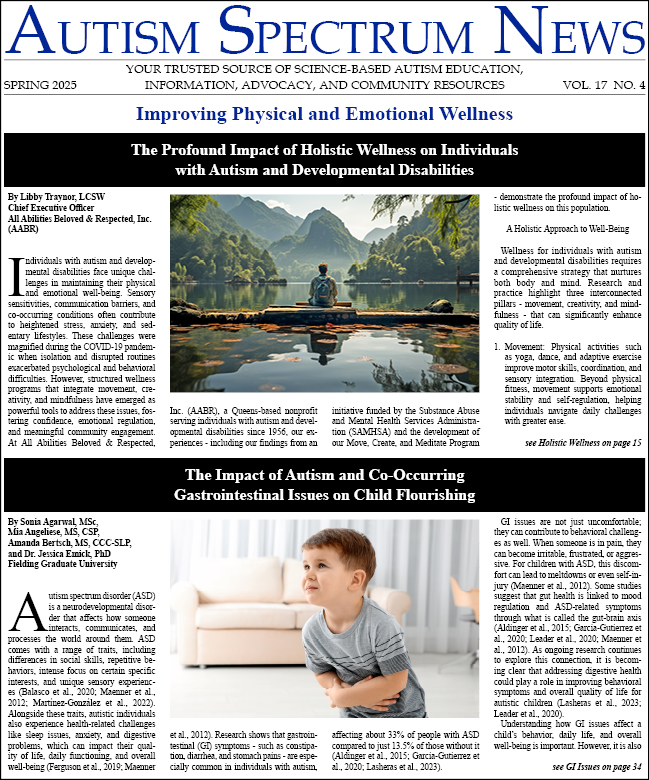Let us begin with facts: job searching is not always easy – for anyone. Most people, whether they are autistic or not, will experience several potential hurdles when finding the right job for them. Although there are additional challenges that are unique to autistic individuals, the initial steps of the journey are similar, and these core elements of any job search campaign can make a difference in a competitive job market.

Spectrum Works is a non-profit dedicated to providing job training and life success skills for autistic young adults. While much of the curriculum and practical training are specific to autism, portions of our career planning are applicable to anyone and are key to identifying who you are and what you can bring to the professional world.
Job searching is a complex process and no one article will offer an all-encompassing solution. Most autistic individuals will need the support and guidance of professionals over time to become seasoned in all aspects of career planning. In the meantime, here are some quick tips you can take away today to get started and that can hopefully help you gain an edge in your personal marketing campaign.

Michael Giorgio
Who Am I? What Do I Want?
Our ultimate goal is to find meaningful employment – a job that inspires and fits “me.” Much has been written lately about “special interests” related to autism. Beyond challenges – which are individual to each person – there also exists your own unique attributes or strengths. Identifying and promoting these strengths to align with the myriad job requirements out there (that most of us never realized existed) can bring you to the top of the resume pile. That is the first step. That is where you need to be. The process of interviewing and winning the job is phase two of the process, which many other resources will cover further in depth.
A recent article in Spectrum illustrates how one of the hallmarks of autism, an intense and often narrow focus on a very specific topic, can lead to a career. In response to autistic blogger Pete Wharmby’s 2020 Twitter post – “Anyone #autistic managed to make a living from a special interest?” – people with professions as diverse as librarian, tattoo artist, train conductor, and even paleontologist responded that their passions inspired and informed their life’s work.
Temple Grandin, PhD, whose passion for animals led to her becoming a preeminent expert and thought leader on animal behavior, and John Elder Robison, an auto enthusiast and highly recognized restorer of classic cars, are two prominent autism advocates who have turned their special interests into a profession.
Try this (fun) exercise: make a list of everything you enjoy doing. It can be anything from playing video games, collecting rare coins, eating a certain type of candy, or simply sitting among nature. Now make a list of everything you don’t enjoy. Maybe it’s getting up early in the morning, washing the dishes after dinner, or, specific to some autistic individuals, avoiding crowded places with a lot of noise. Let your mind run; just keep writing it all out until you have a sizable list of pros and cons.
Already you may begin to discover some possible jobs to embrace or avoid. My above scenario means that I enjoy technology and thrive on competition; however, I would prefer to stay in my own space away from people. I have a very high attention to detail and a passion for certain parts of history. I’m also fascinated by the way in which things are made or constructed. I would prefer to find a job with flexible hours or at least that would allow me to work remotely. Based on these preliminary conclusions, I definitely do not want to work in a restaurant or dining hall!
Jobs or professions I might like (be broad in your exploration):
- Game designer (my “dream” job)
- Computer technician, IT specialist or Webmaster/designer
- Museum or art gallery guide/docent
- Archeology
- Numismatic Jobs (coin related): Who thought you could have a career in coins? Just one of many examples of jobs that exist but are not well known. There is gold to mine in your special interests!
- Food science or manufacturing
- Ecology, Environment Science
- Working in a National Park or Nature Preserve
Some of the above jobs may require additional education, while others are possible entry level opportunities that can grow in responsibility. Some jobs may even pay for you to go back to school. Internships while in school can sometimes lead to jobs as well and are a most effective way to enter a competitive industry or company – this is especially true with creative industries such as design.
The Resume and Cover Letter as Your Self-Marketing Tool
Your resume is your calling card. This and your cover letter will give the viewer their first impression of you, so maximize your skills and sell what you do best. This is of paramount importance if you have limited professional experience. Your task is to craft your skillset into a marketable example of how you will be an asset to a given organization. To the point: get the hiring manager to “fall in love” with you. Not literally, but make them want you for that job as the perfect candidate.
You can create impact with virtually any set of responsibilities by quantifying accomplishments and using strong active verbs to make your skills applicable to any number of potential jobs, thus allowing the reader to draw parallels to what they are seeking. Perhaps you worked in a supermarket as a cashier or stock clerk:
- Managed over $25,000 per week and accurately reconciled the daily cash drawer (skills = attention to detail with no mistakes and ability to handle large amounts of money responsibly)
- Interfaced with 200 customers per week in a high production environment (skills = working with people in a fast-paced setting and the ability to handle a large volume of products in a short amount of time)
- Delivered superior service and resolved customer and product issues for over 50 customers per week. (skills = adept at problem solving, working well under pressure, ability to deal with a wide range of people in difficult situations, commitment to and satisfaction in helping others, promoting a positive image of the store and being a brand ambassador, and the list goes on…)
- Reviewed 125 incoming weekly stock deliveries for accuracy (high attention to detail, reduced errors)
- Organized stock shelves and unpacked 2 pallets containing 35 large product boxes nightly for visual store display (ability to visually organize and complete a task in a defined amount of time)
Quick tips for writing a resume that gets noticed:
- Your profile/objective should clearly state what you want in relation to the job application and how your accomplishments will match that particular position. NOTE: you can have a series of resumes to suit different types of jobs: one for computer work, another for museums, etc. Overall, be sure to adapt your profile/objective to the job. Moreover, avoid appearing as a “jack-of-all-trades.” Employers are looking for targeted experience, so that is what you need to show them.Example: Seeking a growth-oriented position as a museum tour guide utilizing my expertise in historical coins. Demonstrated ability to effectively communicate with diverse populations. Able to lead and deliver pertinent information in an engaging and entertaining presentation. Record of success in achieving increased return visitor and customer satisfaction scores.
- Quantify and use strong active verbs.
- Revise and prioritize accomplishment and responsibility bullets according to how they address the needs of the position.
- Limit the resume to one page.
- Remember that there is no one way to prepare a resume. There are many variations, but all should allow a reader to get a sense of your skill match by scanning from top to bottom in thirty seconds or less – because that is about how much time a person reviewing hundreds of resumes will give it.
Your cover letter is where you give the reader a greater sense of “you” in relation to your skills and accomplishments. Elaborate on certain aspects of your experience that were benchmarks for your success and of which you are proud. In short: explain how you match the job requirements and confirm the position as one about which you are very interested in learning more. Close by setting the expectation: “I look forward to meeting with you soon.”
The Organization for Autism Research’s Hire Autism Guide provides examples of resumes, cover letters, and even resources for parents.
You do not want your best efforts on resumes and cover letters to be compromised by a few grammatical errors. Grammatical language impairment is sometimes a characteristic of autism spectrum disorder, according to a study by Frontiers in Psychology. If this is not you, pursue that writing career (as countless autistic people are doing now). However, millions of job opportunities exist where writing is not a requirement for a great future. In either case, abide by the spell check function and have someone proofread your work!
Conducting a Job Search
Consider this your part/full time job for the moment. Dedication, focus, and an integrated strategy using multiple resources are the best method for results. Most important: do not get discouraged! The job market is competitive for everyone. Do your best not to take rejection personally. Often, it’s not about you.
Here are the most effective resources for conducting a comprehensive job search:
1) Networking – This is foremost in importance and is the way in which many people will find their job. A mix of old and new is the best approach.
Social Media is one of the most valuable tools in connecting to the right people. LinkedIn is the primary platform for professional information sharing and employment opportunities and is a must; it will not only connect you to people but acts as a means for hiring managers to find you and review your profile (learn how to create a LinkedIn profile here).
- Once you create your profile, begin by searching for people you know: friends, relatives, teachers, former employers, etc. Much like other platforms (Facebook, Twitter, Tik Tok, etc.), you will see their connections. Build your network by requesting to connect with their friends, relatives, and business associates.
- Search for companies and industries of interest and “follow” them.
- Join groups for your areas of interest.
As you build your network and begin to apply for jobs directly through LinkedIn you will begin to see how your connections may be related to that company. Make a direct connection (“Hi, John. I see you know my cousin Robert. I just applied for this position and hope you will review it / ask HR to be sure they receive it.”) or ask your personal connection to introduce you (“Hi Robert! Your colleague John is hiring for a job I’d really like to be considered for. Can you introduce me?”)
Informational Meetings are an excellent way to meet people directly. Ask people you know if they would be willing to arrange a short meeting between their associates and you, especially if their connection is to one of your targeted companies. The goal is three-fold:
- Find out more by asking researched questions about that company
- Get that person to like you
- Ask for names, phone, and email for 2-3 people to whom they might be willing to reference you.
They will either keep your resume in case a job becomes available or reference you to someone else they know. Keep doing this to build the network. While you may have known nobody in the beginning, now you have a network of people who are familiar with you and want to help. Your request is simple: “Hello, Mr. Smith. My cousin Robert suggested I reach out to you. Would you be willing to meet with me for about 15 minutes so I may find out more about the company and what you do? I’d also love it if you could review my resume and provide feedback.” (People love to help others!)
**** The intention is to build a network. It is not for a job unless that person decides to interview you. You will need to decide whether you want to disclose your autism. This is a personal choice. If the company already has a program for developmental disabilities, disclosing may actually work to your advantage. You may also choose to inform the person that you are autistic but have marketable skills and are just looking for opportunities to show what you can do. But the choice is yours only.
2) Search Engines and Job Boards – Register for job search engines such as Indeed, Zip Recruiter and Idealist as well as job boards related to your industries of interest. Set up job alerts to receive daily or weekly emails with position openings targeted to your experience and interests.
Here are some other resources for conducting a job search, including guides for the interview process:
- Hire Autism Guide: Preparing for the interview
- Inc dot Com: Interview questions (You may be asked these, especially if you choose not to disclose, so best be prepared.)
Once again, this is a quick tip guide to get started and hopefully increase your application response rate. It is advisable to obtain the services of support organizations, government agencies such as VR (Vocational Rehabilitation) services (here is a list of agencies in every state), and independent career counselors who specialize in working with autistic individuals at all levels of experience and cognition for interviewing purposes, being offered employment, and retaining a job long-term.
Learn more about Spectrum Works and our job training and life skills programs for transitional age young adults at www.spectrumworks.org
Good luck in your search. Now get that job!
Michael Giorgio is Communications and Business Development Manager at Spectrum Works, Inc.





